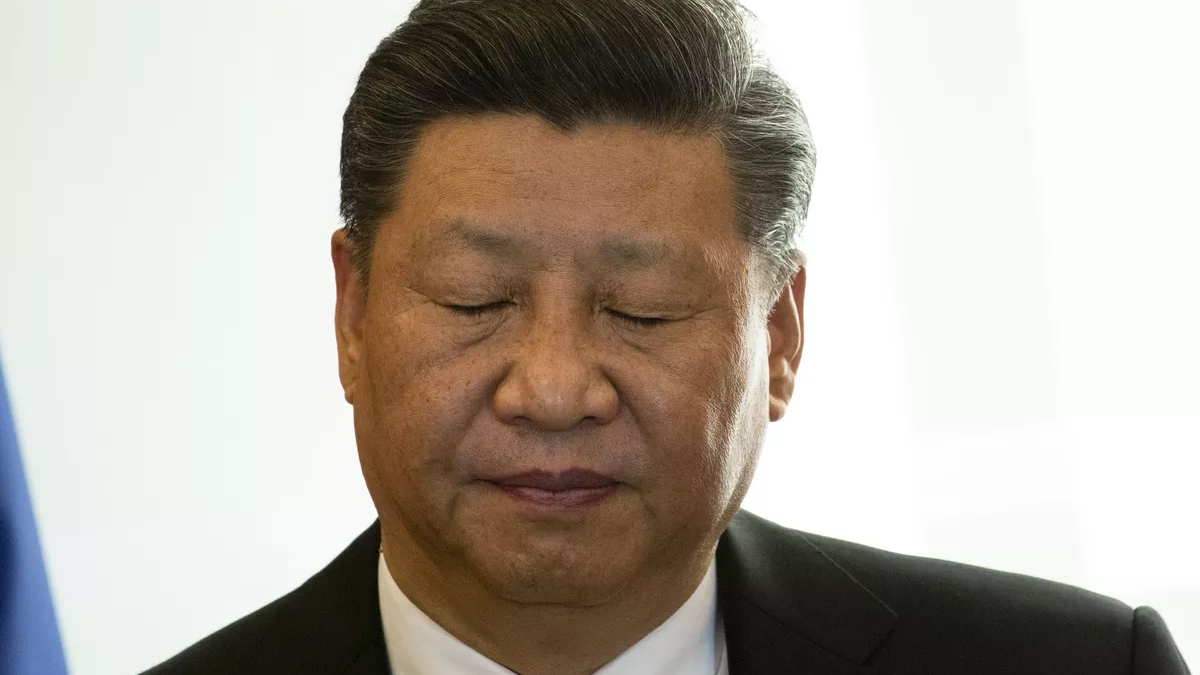Opinion
The most effective censorship is one where the authorities don’t have to do anything at all: everyone pre-emptively censors themselves.
Which, as George Orwell pointed out, was the whole reason for NewSpeak: anti-Party thought would be literally unsayable, and thus un-thinkable. In a remarkable but lesser-known Swedish novel, Kallocain, which preceded 1984 by nearly a decade, the totalitarian World-State has almost succeeded.
In real life, the Soviet Union, East Germany and Maoist China similarly succeeded in nearly total censorship. Survivors of those regimes relate that people never spoke “subversion” to even their closest family, because they could never be sure who was an informer.
Xi Xinping’s Chinese regime has imposed a stifling pall of censorship that, thanks to modern information technology, Mao could only have dreamt of.
So thorough that even ethnic Chinese living outside China are censoring themselves.
In China there are censors who review jokes in advance, and punish performers who cross political red lines. Earlier this year, an entertainment company was fined about $2 million when star comedian Li Haoshi made a joke that referenced a Chinese military slogan.
A regime which bans Winnie-the-Pooh because too many people joked that he looks like Xi Xinping clearly has no sense of humour. The worst is that the regime has moulded generations of Chinese in their own dreary image.
Overseas, comedians say they don’t fear punishment, but most say political jokes aren’t funny, or make people uncomfortable. Many are not very familiar with political humor, after growing up in a country that largely censors it.
Which is a pity, because the history of Chinese culture is littered with great humour, often surprisingly vulgar. The Chinese classic, Journey to the West, known to Westerners as the tv show Monkey, is one example. The 17th century novel, The Carnal Prayer Mat, is as mind-bogglingly, pornographically funny as The Golden Ass.
And it’s not entirely true that Chinese overseas don’t fear punishment.
Comedians are very aware that people can get into trouble for what they say. Asked about Li Haoshi, comedians said he should have known better.
“Even if you do not make mistakes but someone else does, it affects the whole industry,” said Zhong Di, a 30-year-old student in Milan who also performs standup.
As Australian shit-poster activist Drew Pavlou has learned the hard way, even foreigners will feel Beijing’s wrath, if they poke fun at the regime.
China has a record of harassing its nationals abroad for activism. It has also threatened international stars from abroad with boycotts or bans on performing in China. Nigel Ng, a Malaysian comedian based in the UK who created the popular character “Uncle Roger,” lost his Chinese social media accounts after a clip from a live show went viral in which he joked about China listening in through cell phones.
The Chinese regime is obviously well aware that, for oppressed peoples, humour is often a way of striking back at the regime. Beijing was furious, for instance, when the cartoon, Little Rabbit, Be Good, mocked not only the regime’s response to the tainted milk powder scandal, but the whole idea of Xi’s “Harmonious Society”.
Vicky Xu, a Chinese-born journalist in Australia who also performs standup in English, said that Chinese people have a long history of cracking jokes about sensitive topics.
“If you look back at a lot of the movies or TV shows made in China like 20, 30 years ago, there are more political jokes than today. So how do you explain that?” she said.
Xu, whose work is critical of the Chinese government and who has received blistering blowback from China’s official media and nationalist trolls, said that politics affects people’s lives in China so much that not talking about it is “ignoring the elephant in the room” […]
But even roundabout references to politics make most Chinese-language audiences uncomfortable, Xi said. After he performed at a Chinese restaurant in Australia, the owner asked him to be careful; at a standup competition, he got zero audience votes. He’s wound up performing almost exclusively at English-language venues.
National Post
Authoritarians know that every joke is a tiny revolution. No wonder they’re so determined to stamp out comedy.

